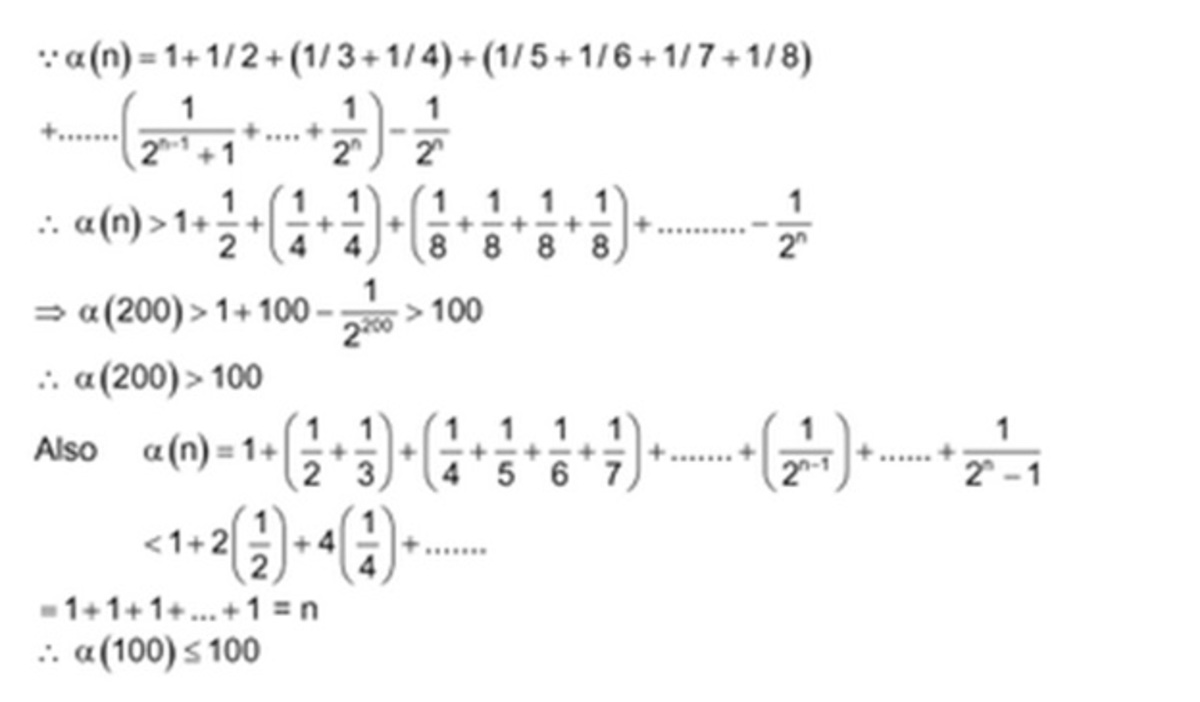Harmonic bounds
α ( n ) = 1 + 2 1 + 3 1 + 4 1 + . . . . + 2 n − 1 1
For a positive integer n . define α ( n ) as above, then which of these are true?
A ) α ( 1 0 0 ) ≤ 1 0 0
B ) α ( 1 0 0 ) > 1 0 0
C ) α ( 2 0 0 ) ≤ 1 0 0
D ) α ( 2 0 0 ) > 1 0 0
This section requires Javascript.
You are seeing this because something didn't load right. We suggest you, (a) try
refreshing the page, (b) enabling javascript if it is disabled on your browser and,
finally, (c)
loading the
non-javascript version of this page
. We're sorry about the hassle.
2 solutions

Moderator note:
Yes, good use of inequalities to bound the values. For the sake of variety, can you think of solution that involves calculus?
H k ∼ ln k . Here we have k = 2 n − 1 so we get α ( n ) ≈ n ln 2 . We know 2 > ( 1 + e ) / 2 > e by AM-GM so ln 2 > 0 . 5 since ln is a strictly monotonically increasing function.
Hence, we get that A and D are true.
The integral of 1/x from 1 to exp(n ln 2)-1 is approx. Is 69.315 for n=100 and 138.62 for n=200 according to WolframAlpha. So the replies A and D are correct.
A should be corrected as a(100)<100 I think
see above @Aakash Khandelwal
Log in to reply
in last step you must write a(100)<100 and not a(100)<=100